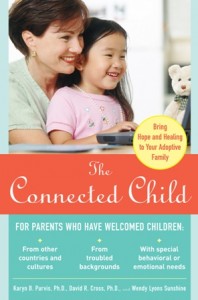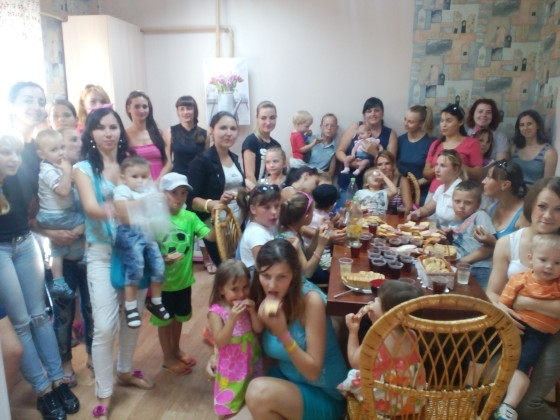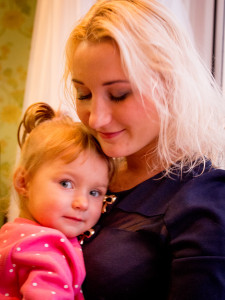Emily’s Stop the Cycle lesson bears fruit

Note from Emily: in June 2015, I visited Ukraine and shared some information at a Stop the Cycle meeting, much of it based on Karyn Purvis’s bookThe Connected Child. In this blog Yulia has expanded on that information and shared some of the ways she and others have put it into practice. Many of these thoughtful ideas are her own, though she has attributed them to me!
Emily shared with us about how to show love to our children even when we are tired, have problems at work, or when we’re irritated for some reason – or what to do when our children are hysterical, demanding, or just ignoring us.
Getting Down to the Child’s Level
First, when you want a child to be interested in something, you must bring yourself to the child’s level. This shows your willingness to be part of your child’s world, to understand what’s on his or her heart.
It’s much easier to connect with the child if the two of you are on the same physical level:
- It’s easier to establish eye contact and hear each other;
- It gives you the same weight in the conversation;
- It’s more difficult for a child to ignore you when your face is right there!
How to set up this connection?
When your child ignores you, or you can’t understand what she wants to tell you, change your position. Come down to the child’s level, where you can see the child’s eyes.
When your child asks to be picked up, it may be an attempt to get on your level. Your choice: you can bring her up to your level or reach down to her level. When you give your instructions from above, your child may protest, ignore you, and oppose you.
I have begun to practice this with my Ksusha.
She is hyperactive, manipulating, and an actress, and loves to be hysterical and have an attitude when there is a crowd. When I disciplined her before, she never looked at me, and it made me angry. So I always shouted, “Look at me, look at my eyes, I’m talking to you!” But she just ignored me even more, and when I shouted, she started to cry or her temper flared up.
After Emily’s seminar it became much easier to me to communicate with Ksusha.
Even at the store, when she is tired and wants me to buy her everything, I stop, stoop down to her level, hug her, wait until she’s quiet for a moment, and then talk as if to an adult. I explain why we can’t buy this candy or toy right now, for example, that it’s not healthy or for babies, or you need to grow a little more and then we’ll buy it. Or I tell her it’s too expensive, and change the focus by showing her something cheaper that we can afford.
Now I’m not ashamed when she shows her temper in public, since I can react calmly myself and get her calmed down.
Physical contact
Emily told us how important it is to physically show love to our kids.
When you speak to your child, touch her hand, back, or face.
It’s easy to touch your child. The child may not even notice consciously, but her soul will hold onto it. If it’s sincere, such warm physical contact can express unconditional love. The kid’s “love tank” is refilled with physical affection from her parents. Even if the child is not ready to communicate, inform her about your love with the touch of your love.
A child can reflect only what he receives. If you offer love to a child, he will give it back. We are reponsible for our kids feeling happy and loved.
If a person doesn’t get enough love in childhood he will not able to love himself or receive love from others. Such grownups have difficulty expressing their love.
Katya Bondarchuk, who is not a mom yet, was present at our meeting. After the meeting she came up to me and said, “Now I realize why it’s so difficult for me to love people. But I also realize how important these meetings for moms are. It’s so cool there are people who can help you and teach you. When I become a mother, I’ll definitely come to these meetings.”
“Now I realize why it’s so difficult for me to love people. But I also realize how important these meetings for moms are.”
Quality time
The third and maybe most effective way to show a child that you really love her is your unlimited attention. This requires deliberate time with your son or daughter.
Three weeks after the meeting with Emily, Oksana Orendovska told me that she realized how little time she spent with her daughter Liera. So she started to spend her free time playing with Liera, doing different activities, having “girl talks.” As a result, Liera stopped giving her trouble. She does what her mom asks her. Oksana says she has established such a good connection with her daughter that she is not tired or tense anymore.
The lesson for myself is that for my kid to be happy, she must be sure she is loved.
 Stop the Cycle meeting with Emily
Stop the Cycle meeting with Emily